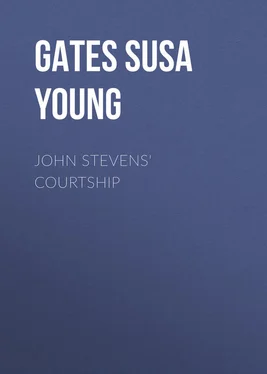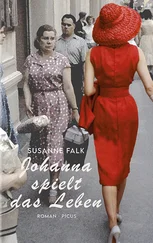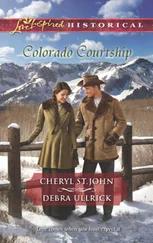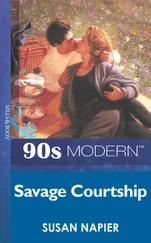Susa Gates - John Stevens' Courtship
Здесь есть возможность читать онлайн «Susa Gates - John Stevens' Courtship» — ознакомительный отрывок электронной книги совершенно бесплатно, а после прочтения отрывка купить полную версию. В некоторых случаях можно слушать аудио, скачать через торрент в формате fb2 и присутствует краткое содержание. Издательство: Иностранный паблик, Жанр: foreign_antique, foreign_prose, на английском языке. Описание произведения, (предисловие) а так же отзывы посетителей доступны на портале библиотеки ЛибКат.
- Название:John Stevens' Courtship
- Автор:
- Издательство:Иностранный паблик
- Жанр:
- Год:неизвестен
- ISBN:нет данных
- Рейтинг книги:3 / 5. Голосов: 1
-
Избранное:Добавить в избранное
- Отзывы:
-
Ваша оценка:
- 60
- 1
- 2
- 3
- 4
- 5
John Stevens' Courtship: краткое содержание, описание и аннотация
Предлагаем к чтению аннотацию, описание, краткое содержание или предисловие (зависит от того, что написал сам автор книги «John Stevens' Courtship»). Если вы не нашли необходимую информацию о книге — напишите в комментариях, мы постараемся отыскать её.
John Stevens' Courtship — читать онлайн ознакомительный отрывок
Ниже представлен текст книги, разбитый по страницам. Система сохранения места последней прочитанной страницы, позволяет с удобством читать онлайн бесплатно книгу «John Stevens' Courtship», без необходимости каждый раз заново искать на чём Вы остановились. Поставьте закладку, и сможете в любой момент перейти на страницу, на которой закончили чтение.
Интервал:
Закладка:
With a common instinct both looked around for John Stevens. Henry Boyle stood near them, and he answered their questioning look with a little pallid smile. Dian felt that the young man was as frightened as she, and again, in spite of herself, she felt contempt for him.
Away off in the lower corner of the bowery, stood placid John Stevens, stroking his long silken beard, with as much composure as if the announcement was a party to be given in the Social Hall. He did not look at Diantha, but seemed to be thinking of something very intently, which was not unpleasant, and she wondered what it was.
"Why doesn't John come over here?" asked Ellen, as she, too, discovered the tall figure of their friend.
"Little goose, do you fear that the soldiers are within a half-mile of this place?" asked Diantha, laughingly. "Hark, President Young is going to speak," and then both sat with silent, spell-bound hearts, listening to that clarion voice, which uttered the sentiments of a people, harrassed, driven and mobbed.
His reassuring words, and the strong, calm spirit of inspiration which spoke through the brief sermon, filled every heart with renewed confidence and hope. What the future held in store for them as a people or as individuals, no one could say; but one thought buoyed up every heart; God was with them and they could not feel dismayed.
The rejoicing and merry-making was not interrupted for long; for after supper the bands tuned up, the pine-trees were lighted anew, and the merry hearts and the dancing feet filled the pretty vale with rollicking pleasure.
"Where is John Stevens?" asked Dian of Henry Boyle, who came up to claim her for the first dance.
"Oh, he had to go home on some business for the President," answered Ellen Tyler, who sat near.
"Without saying one word to me?" indignantly protested Diantha.
"He asked me for my horse," said young Boyle, "and told me I might drive you home in his place."
"Well, of all odd fellows, surely John Stevens is the oddest," answered Dian, none too well pleased with this summary disposal of her valuable person. She would certainly have to take the trouble to teach that young man a lesson some day, when she had time; perhaps when all this army business was over, she would seriously take him in hand. Not that she cared a rap about him, but it was not a good thing for a young man to have such careless ways of treating her sex, fastened upon him by long continued habit. Diantha was pre-eminently given to setting people right, and she did not intend that her gentlemen friends should escape her molding hand.
There were many wakeful hours spent in that gay little tented village and long before the peep of day the next morning, men were hitching up and packing wagons. Ere long the whole cavalcade had taken up the line of march, and soon the silence of the mountain peaks chained the whispers of pine and quaking-aspens within the long vale, leaving the circling memories alone to sweep forever over the lake like shadowy wraiths of summer mist.
VI
WHO SHALL FEAR MAN?
At the time of this story (in 1857-8) there stood in Salt Lake City, in the Thirteenth Ward, a small adobe house of four rooms, with the tiny square-framed windows, set at regular intervals from a central brilliantly green door which gayly faced the street. Not only was the green door rare because of its extremely unconventional color; it was also unusual in its quick response of welcome to black or white, bond or free, in a place where welcome grew more lavishly than did the grass in the streets. There was something so aggressively bright about that loudly painted door that even the Indians grew to love its restful color and the atmosphere that it betokened for all who pushed ever so lightly at its ready portals. The green was such a happy blending of the dark shades of the cool pine with the yellowed masses of creeping mosses that one's eyes were rested just to glance at it. None who passed within could fail to recognize that some one out of the ordinary lived behind those gaudy yet pleasing door-panels. The poor, the sick, the halt, the lame and the blind, all learned the ease with which that bright door opened, and the wealth of gentle welcome which spoke in the brighter eyes of dear old widowed Aunt Clara Tyler. The Indians, too, knew where they would receive plenty of "shutcup," and if one had a bruise or a wound, only Aunt Clara's hand could soothe and dress, to the complete satisfaction, the injured member.
Dear Aunt Clara! The mind traces in golden light her lovely picture. Bright and black were her eyes, but never sharp and cruel; she had a sweet mouth and the blackest of hair. She was short and very stout; but who ever saw aught but the lovely spirit which was enshrined within her active body. People used to wonder why Aunt Clara had no enemies, and why everything animate looked to her for succor and protection. The secret could all be told in two words – womanly sympathy, such sympathy as the noblest of women and the purest of angels can bestow; a sympathy which never encouraged evil because it made a sharp distinction between sin and sinner, but which drew the whole sting from the wound before dropping in the needed tonic of wise counsel, and covering all softly with the vial of loving tenderness. That was the secret of her popularity with young and old in the whole neighborhood.
She had no children of her own, which enabled her to be mother to the whole town. But her dead sister's child, Ellen, was as dear to her as an own child, while she had a deep and abiding love and confidence in the other motherless girl, Diantha Winthrop. She had no money of her own, and being a widow, she had few old clothes or supplies to dispose of; yet, someway, she was a veritable Relief Society. These organizations were not then in working order; and dozens of mothers with big broods of children could have told how Aunt Clara's winning voice and manner drew from them all the half-worn clothes they could possibly spare; and how such a mother would laugh as she saw some podgy Lamanite squaw going down the street with her own jean skirt on, patched by Aunt Clara's thrifty fingers and clean for the last time in all its final mournful existence. It was quite natural for the Bishop to send ragged children or newly arrived emigrants to knock at Aunt Clara's friendly green door, for help, spiritual or temporal.
No wonder, then, that the night after the return from the celebration in Cottonwood Canyon, a dozen young people sat in the comfortable rush-bottomed chairs within the opened portals; and while Aunt Clara moved quietly among them, putting the finishing touches to her evening work, they talked with excited voices of the impending danger.
Aunt Clara saw that something was necessary to drive away the alarm. Going into her bedroom, she drew out six large skeins of woolen yarn.
"Here, girls, I have a chore for you to do. I want this yarn wound off for it is to be knitted up at once. Boys, you can help by holding the yarn nicely and properly, and the one who is done the soonest shall have one of the dough-nuts left over from my pic-nic."
"What's this for; to knit stockings for our soldiers?" asked Diantha, who was, as usual, the center of the group.
"It's to knit socks for the Bishop and the boys; I am sure I don't know, nor do I care, whether they go out to fight as the defenders of our country or not. It will be all right whatever they do. Didn't you hear President Young say that God would fight our battles for us? Let that be sufficient."
"Don't you think we are going to have a war, Aunt Clara?" ventured timid Millie Howe, who was one of the group.
"No, I don't. Of course I don't know all the facts of the case, but I have heard President Young say many times since we entered the Valley that we should not have to fight any more battles, for God would fight them for us. I have perfect faith in his word."
Читать дальшеИнтервал:
Закладка:
Похожие книги на «John Stevens' Courtship»
Представляем Вашему вниманию похожие книги на «John Stevens' Courtship» списком для выбора. Мы отобрали схожую по названию и смыслу литературу в надежде предоставить читателям больше вариантов отыскать новые, интересные, ещё непрочитанные произведения.
Обсуждение, отзывы о книге «John Stevens' Courtship» и просто собственные мнения читателей. Оставьте ваши комментарии, напишите, что Вы думаете о произведении, его смысле или главных героях. Укажите что конкретно понравилось, а что нет, и почему Вы так считаете.












